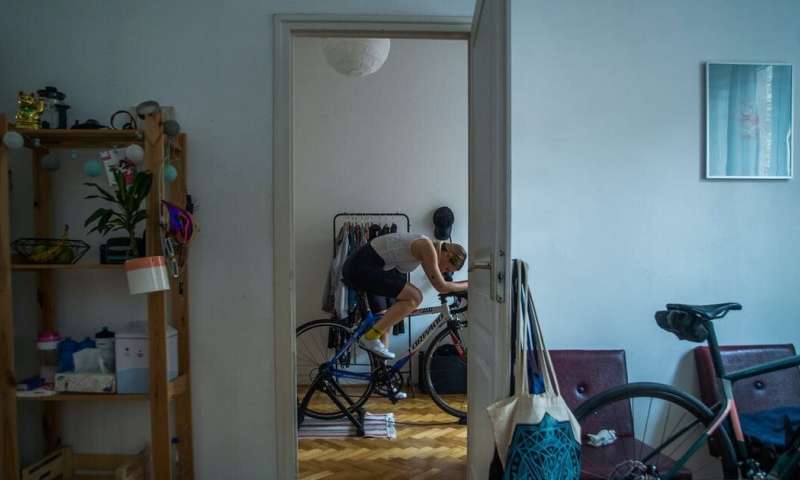
Trying to find ways to make the most of time in lockdown has motivated many people to learn new skills, polish up old ones, and tackle old to-do lists. Social media and the news present an abundance of stories about the amazing things people are accomplishing during lockdown. There are tips on how to be the perfect parent, have the perfect at-home workout routine, and even bake the perfect loaf of bread.
It’s easy to think that this would help people’s mental health by giving them a sense of purpose and distraction. But for those prone to perfectionism, this information can fuel feelings of insecurity and self-doubt. Striving to measure up to the examples on social media can take a further toll on mental health when projects fail because you don’t have the resources needed. Perfectionism can make you more vulnerable to poor wellbeing during lockdown.
Unrealistic standards and self-criticism
Perfectionism isn’t simply about striving to do your best. Instead it involves a tendency to have frequent thoughts about achieving ideal standards coupled with relentless striving to reach goals that are unrealistic.
Personality science has revealed that perfectionism comes in two main forms. One is characterized by overly critical and negative views of your own behaviour, and an excessive preoccupation with other people’s expectations of your performance. These self-critical perfectionists get little satisfaction even when they do bake a lovely loaf of sourdough bread. To them, it will never be as good as the loaf their friend baked.
The other form of perfectionism is more similar to the common idea of a perfectionist—someone who strives to meet very high standards. But there’s a catch. Although these striving perfectionists tend to set their own standards and care less about what others think, they too have difficulty savouring successes and tend to take on too much. Chances are that if you are secretly wishing that the lockdown goes on longer so that you can get through your to-do list or achieve all your self-improvement goals, you’re probably this type of perfectionist.
Social comparisons
It’s natural for people to compare themselves to others to get direction when they experience uncertainty. These social comparisons help us evaluate our performance and motivate self-improvement.
But for self-critical perfectionists, checking social media and the news for how others are dealing with lockdown can be a reminder that they are not accomplishing enough, not being the best parent, and falling short of what is expected. This can lead to worry and repetitive negative thoughts about not being perfect, which can increase risk for depression and distress.
Feelings of not being perfect in the eyes of others provide another reason why perfectionists are at risk for poor mental health during lockdown. Reaching out for help means admitting you’re not perfect. This is one reason why perfectionists are more prone to social disconnection and loneliness.
Health
With regular exercise routines disrupted, people are turning to online fitness classes and videos to stay fit during lockdown. You might expect that perfectionism would give an advantage when it comes to staying healthy. But exposure to the “perfect” exercise routine promoted by ultra-fit exercise gurus can trigger feelings of inadequacy.
Self-critical perfectionists may respond by simply abandoning any attempt to stay fit. My research has shown that this form of perfectionism is linked to procrastination and poorer health. Striving perfectionists, on the other hand, can go into exercise overdrive to try to become as ultra-fit as the online instructors, pushing themselves too much and increasing risk for exhaustion and injury. Neither extreme is healthy.
Embrace imperfections
So how can perfectionists manage their wellbeing during lockdown? Learning to accept personal limitations and imperfections is crucial, but may be easier said than done. Once a perfectionist is reminded that they are not perfect, it is difficult for them to respond with acceptance and compassion towards their shortcomings—self-criticism is the default response. This is why it’s important to limit exposure to social media that promotes perfectionism.
Keeping things in perspective can also help. For example, is it really the end of the world if your sourdough starter failed?
More importantly, reminding ourselves that we are all imperfect and that we all struggle with failures and shortcomings is essential for practicing self-compassion. Showing ourselves the same kindness and acceptance that we would for a close friend who is struggling during lockdown is one way to cultivate this self-compassion.
In a recent tweet, J. K. Rowling blasted social media users who were “implying people are losers if they aren’t learning a new skill” during lockdown.
As she aptly noted, learning to accept our feelings and distress is “a better route back to good mental health than beating ourselves up for not being superhuman.”
Source: Read Full Article
